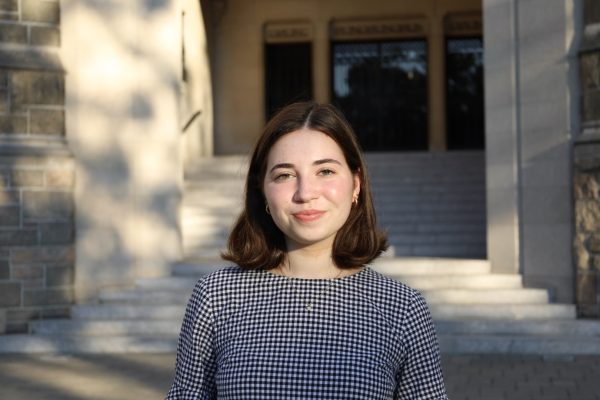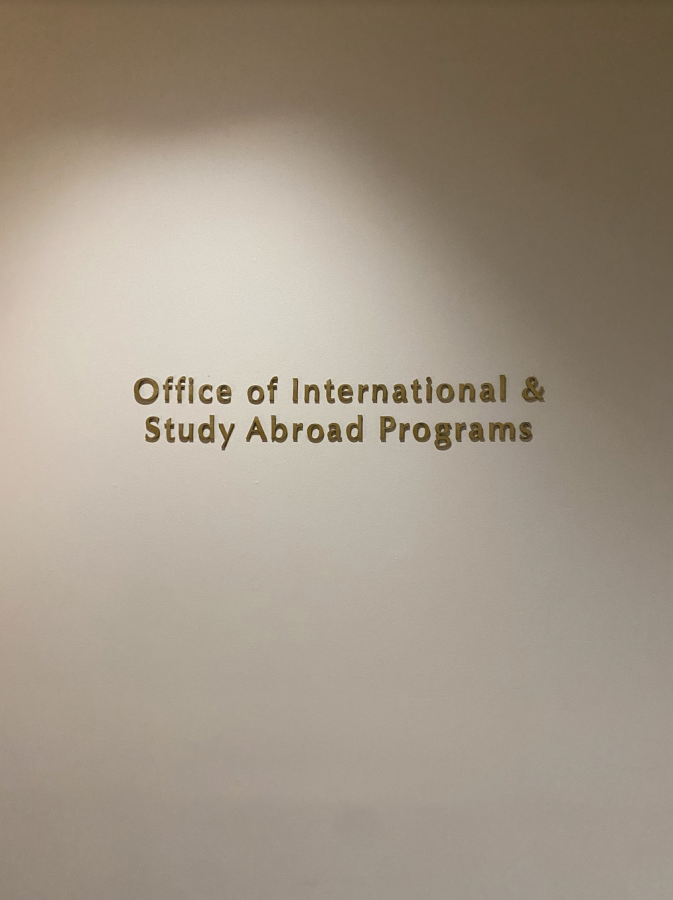Students Speak on Study Abroad Program in Rome
On Feb. 1, Fordham Study Abroad emailed students who were completing applications to study at Loyola Chicago’s John Felice Rome Center (JFRC) to inform them that it was unlikely that students would be able to participate in the program in 2023-24 as they had anticipated. The email suggested that students move their application to one of the other study abroad partner programs in Italy or to a program in a different country. Students who had already started their applications to the JFRC frantically scheduled appointments with Fordham’s study abroad office to transfer their applications to a different program.
However, on Feb. 17, Fordham Study Abroad contacted students to inform them that “conversations with JFRC have progressed since our last outreach” and students can reinstate their application with the JFRC.
The Fordham Ram reached out to the Fordham Study Abroad office, who did not wish to comment, and the Ram did not receive a response from the Loyola Chicago Study Abroad office. Loyola Chicago’s John Felice Rome Center is the oldest U.S. university program in Rome and has a withstanding partnership with Fordham. Laura Kelly, FCRH ’23, chose to study abroad at the JFRC to be in the epicenter of Rome as well as reap the benefits of still attending a small, Jesuit college.
“I chose to go to the JFRC because I wanted to live with other American students, to have a campus within the city of Rome, to feel like I had a slice of home in a foreign country […] We had green spaces to lay and read, tennis courts and a library that were all our own. I can’t speak for every program in Rome, or in any country for that matter, but I think I would much rather prefer the JFRC style of studying abroad than being put up in an apartment somewhere without the tight-knit community feeling of still being at a Jesuit school,” said Kelly.
Michela Fahy, FCRH ’23, chose to study at the JFRC because it was the best study abroad option that fulfilled her major requirements. The fact that the JFRC has a Jesuit curriculum made it feasible for Fahy to complete her English, humanitarian studies and Italian classes. However, Fahy also developed an appreciation for the JFRC’s campus.
“Coming from New York’s greenest borough, I didn’t realize how nice it was to have an abundance of free space. In Rome, all the free space is made of ruins; I certainly found a different kind of beauty and comfort in that, but getting back to our little campus and sitting outside with a book or some music was a privilege,” said Fahy.
Kelly also noted the uniqueness of participating in a partner program with another Jesuit college rather than another Italy partner program Fordham offers such as the IES Rome Center, IES Siena Study in Tuscany and partnership with the Sapienza Università di Roma. “We did service projects together, had talent shows and performances, took field trips, had a final banquet, had JFRC organized trips and went on hikes together as a community. That was really important to me. I don’t want to speak on behalf of every other study abroad program out there, to each their own, but the JFRC is really special,” Kelly reflected.
Fahy had the opportunity to participate in an internship at the Jesuit Curia, the Jesuit headquarters while studying at the JFRC.
“I got to work at the Social Justice and Ecology Secretariat, which is an office that works with different social centers on those social justice initiatives internationally. I went to work at the Jesuit headquarters in Vatican City and every day was a pinch-me moment,” said Fahy.
One of the reasons why Kelly chose to attend Fordham was due to the fact that they had a study abroad partnership with Loyola Chicago. Before committing to Fordham, she knew that she wanted to study abroad at the JFRC.
“I was between Loyola and Fordham when choosing a college, but when I realized I wanted to be in New York for school, one of the main reasons I chose Fordham is because I was still able to do the JFRC program through the partnership that they had.”
Although Kelly values the time she spent in Rome and is grateful for the opportunities she was able to take advantage of, COVID-19 and general communication issues within Fordham’s study abroad office tainted her experience abroad.
“The Fordham study abroad office was difficult to work with at times. I have to call out their ‘virtual office,’ which is a singular Google Slide with a bitmoji and some clipart on it, linking to different pages on the Fordham study abroad website […] If a student or parent has a question about something, odds are they have already read the website and don’t need a bitmoji telling them to read it again.”
Kelly was abroad in Rome during spring 2022, when COVID-19 was a major concern in Italy and Fordham had a travel ban on all their study abroad programs. Although Loyola Chicago students studying at the JFRC were permitted to travel outside of Italy, Fordham students had to abide by the travel ban or face expulsion from the program. During this time, Fordham students and their families negotiated with Fordham in order to try and lift the travel ban.
“The travel ban debacle that occurred in the spring 2022 semester showed the true colors of a few people in the Fordham study abroad office. They [Fordham study abroad] refused to speak to the director of the JFRC on the phone to talk about the travel ban and the disadvantages the Fordham students had while being at the JFRC when all the Loyola students were allowed to travel outside the country and we were not.”
Although Fahy’s experience abroad was affected by the ongoing COVID-19 pandemic, she recommends that Fordham students look into studying abroad at the JFRC; the tight-knit community at the JFRC is one of the aspects of Fahy’s semester abroad that she cherished the most. “Fordham had imposed a counterintuitive travel mandate to keep students from contracting the coronavirus. Everything was very much in flux, and yet it was a beautiful experience… Having a community is one of the things that was hardest for me to leave behind at Fordham, and the JFRC did a great job at trying to create community spaces throughout the semester to bring people together in an unfamiliar environment. We had planned trips, special event nights at the campus, a JFRC newspaper, a calcio (soccer) league, exercise classes and even karaoke nights,” said Fahy.
However, since she was participating in a partner program rather than a Fordham study abroad program, Fahy had difficulty preparing for her semester abroad in terms of organizing transfer credits and attaining student visas. “It became clear that the checkpoints needed to prepare for a semester abroad would be completely self-motivated. I had friends who were participating in Fordham programs like Granada and London and they had the ease of course transfers, were given help attaining student visas and had virtual sessions with information pertaining to their individual programs,” noted Fahy.
According to Kelly, lack of communication between Fordham’s study abroad office and students is a continuing problem. “I’ve called in recent weeks to inquire about the complications with the partnership [Loyola’s JFRC] because I know some people who really want to attend, and I was simply met with ‘we don’t work with them anymore’ and was refused any further information.”

Sofia Donohue is a senior from Kensington, Md., who is majoring in English with a double minor in history and Italian. She first joined the Ram as a digital...







































































































































































































